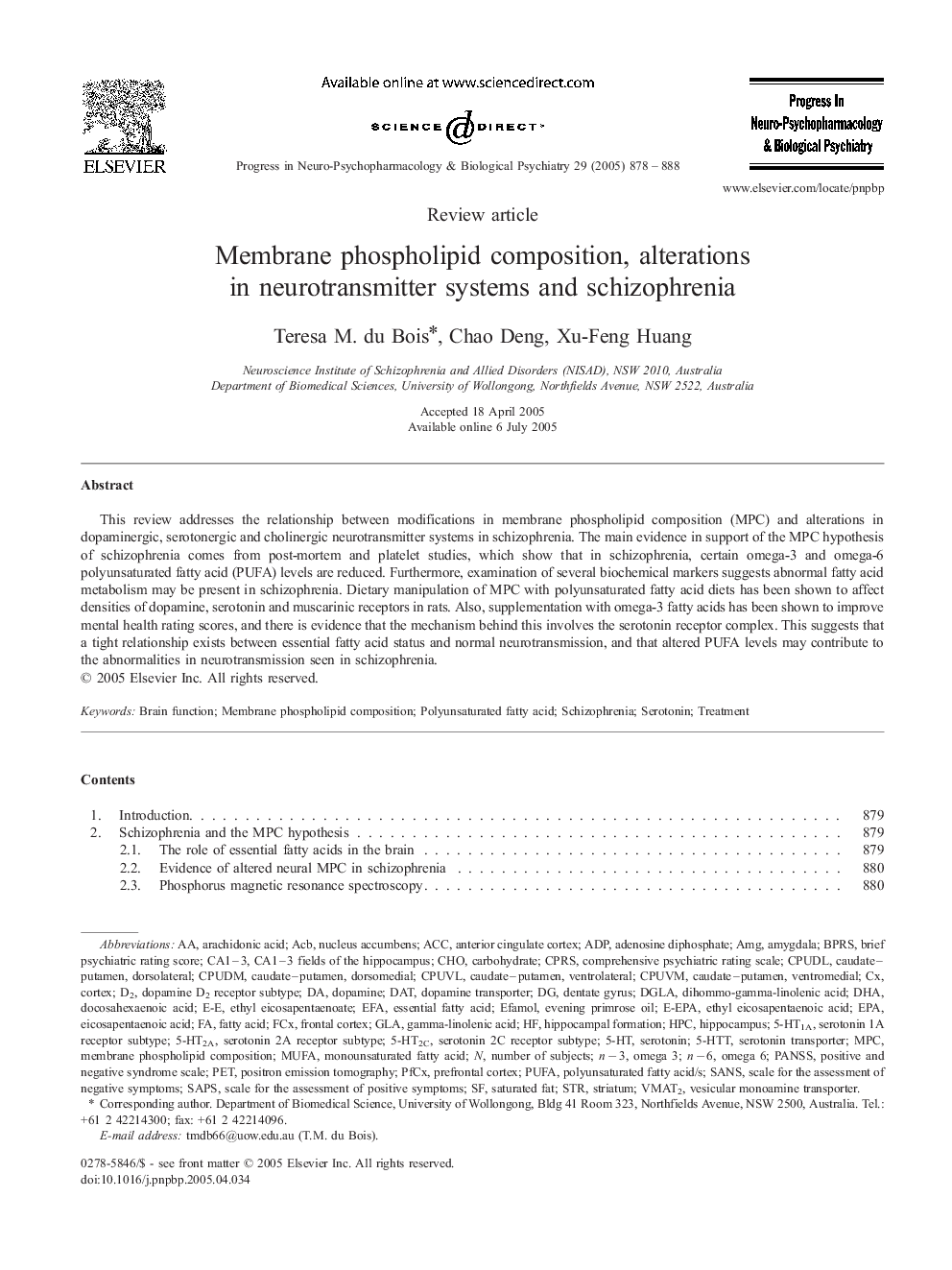| Article ID | Journal | Published Year | Pages | File Type |
|---|---|---|---|---|
| 9016280 | Progress in Neuro-Psychopharmacology and Biological Psychiatry | 2005 | 11 Pages |
Abstract
This review addresses the relationship between modifications in membrane phospholipid composition (MPC) and alterations in dopaminergic, serotonergic and cholinergic neurotransmitter systems in schizophrenia. The main evidence in support of the MPC hypothesis of schizophrenia comes from post-mortem and platelet studies, which show that in schizophrenia, certain omega-3 and omega-6 polyunsaturated fatty acid (PUFA) levels are reduced. Furthermore, examination of several biochemical markers suggests abnormal fatty acid metabolism may be present in schizophrenia. Dietary manipulation of MPC with polyunsaturated fatty acid diets has been shown to affect densities of dopamine, serotonin and muscarinic receptors in rats. Also, supplementation with omega-3 fatty acids has been shown to improve mental health rating scores, and there is evidence that the mechanism behind this involves the serotonin receptor complex. This suggests that a tight relationship exists between essential fatty acid status and normal neurotransmission, and that altered PUFA levels may contribute to the abnormalities in neurotransmission seen in schizophrenia.
Keywords
5-HT2ASAPsMUFAEFADATGLA5-HTTADP5-HT1APANSS5-HT2CEPADGLACPRSVMAT2FCxOmega 6BPRSPFCXCA1–3n − 35-HTACCHPCMPCSTRAMGAcbadenosine diphosphateAmygdalaStriatumSchizophreniaArachidonic acidEicosapentaenoic aciddocosahexaenoic acidFatty acidEssential fatty acidmonounsaturated fatty acidPolyunsaturated fatty acidPUFAgamma-linolenic acidOmega 3Dopamine transporterSANSChohippocampal formationnumber of subjectsPositron emission tomographyVesicular monoamine transporterTreatmentDopamineDHAevening primrose oilSerotoninserotonin transporterdentate gyrusBrain functionCortexprefrontal cortexfrontal cortexanterior cingulate cortexScale for the Assessment of Positive SymptomsScale for the Assessment of Negative Symptomspositive and negative syndrome scaleNucleus accumbensHippocampusPETsaturated fatCarbohydrate
Related Topics
Life Sciences
Neuroscience
Biological Psychiatry
Authors
Teresa M. du Bois, Chao Deng, Xu-Feng Huang,
